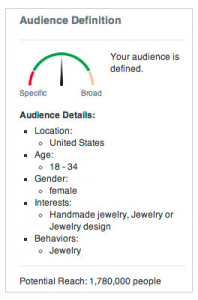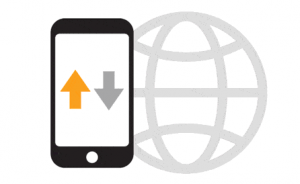Advertisers say demand is leading to more ads to the Instagram News Feed — particularly for users who have a history of engaging with ads.
Recently, a colleague mentioned that she had noticed a significant surge in the number of Instagram ad placements. Conducting a quick test via her feed, she found ads accounted for 22% of 45 posts and 23% of 26 Stories.
She isn’t alone. Peter Stringer, a Facebook and Instagram ads consultant is among the marketers we’ve heard from that have noticed an uptick in Instagram’s ad volume. Stringer noticed the increase at the start of 2019.
Ad load can vary based on users’ engagement
“I currently see an ad after every three organic posts on my own Instagram feed,” said Stringer who believes this may be impacted by his work as an ads consultant, “I do click on a lot of ads to review landing pages, etc, which is likely a signal to Facebook that I’m an engaged clicker/shopper on the platform.”
My colleague also regularly clicks on ads.
When we asked Instagram about the increase in ad load, a spokesperson echoed Stringer’s assumptions on why he was seeing more ads.
“We are always improving upon the ad experience,” said a Facebook spokesperson, “Ad load fluctuates based on how people use Instagram. We closely monitor people’s sentiment both for ads and overall commerciality.”
Facebook’s own documentation also makes clear that ads are served based on a user’s engagement across its platforms — not just your engagement on Instagram alone:
Ads are shown to you based on your activity across Facebook companies and products, such as:
- Pages you and your friends like.
- Information from your Facebook and Instagram profile.
- Places you check in using Facebook.
In other words, users who frequently engage with ads or brands on the platform are more likely to be served more ads. But, from what we’re hearing, it’s not just happening to people who are more prone to click on ads.
Agency data shows ad volume up across the board
Josh Thompson, Portent Digital’s social media strategist, said his agency has also noticed a slow trend of ad load increasing across Instagram placements for Feed, Stories
“We correlate the increased ad volume to an increasing amount of advertisers on the Facebook platform of apps, including Instagram,” said Thompson.
The co-founder of Foxwell Digital, Andrew Foxwell, reported his agency is also seeing a lift in Instagram ads. He noticed the increase after the platform’s outage on March 13.
More advertisers drive the need for more ad inventory
Same as Thompson, Stringer accounts the increased ad load to the rise in ad spend on the platform and Instagram’s need to produce more inventory.
He said this is especially true when it comes to retargeting campaigns by e-commerce and DTC brands, which typically need to get in front of their audiences multiple times before a sale happens.
“Given all the talk of rising CPMs and CPCs across Facebook advertising, the only way for them to address this issue is to continue to find more inventory to sell,” said Stringer, “What I’m seeing lately is that retargeting campaigns generally carry a higher CPM than just a cold traffic or even conversion campaigns. But ultimately, it’s all about the cost to acquire a customer and make a sale, and what the eventual return on that ad spend looks like in the short term, and over the lifetime value of a customer.”
Thompson pointed out that the increased number of advertisers means more competition in the ad auction.
“In the past, we might have seen ten advertisers in the ad auction. Now 20+ advertisers are likely vying to show their ad units to the one user,” said Thompson.
Thompson also noted Facebook’s own data reporting it now has seven million active advertisers — significantly more than the five million reported in April of 2017.
“The increased amount of advertisers will play a part in ad load increase even with new ad placements added to the platform,” said Thompson.
What does it mean for marketers?
Foxwell said he has not seen a measurable impact as far as users possibly hiding ads because they’re annoyed with so many in their feed, but he did say that performance has been mixed on Instagram’s News Feed, depending on the country and vertical.
“We do fear that in the long term, the Instagram News Feed experience will have to continue to evolve in order to have an optimal experience for users and advertisers,” said Foxwell, “The modification of campaign strategies has not been a direct result of this competition, but is in reaction to continued competition across the board. We have continued to test larger lookalikes, cost cap bidding, dynamic creative and campaign budget optimization to combat rising prices.”
Why we should care
Instagram’s increased ad load puts advertisers in a difficult position. In an already cluttered stream, how many ads will be too many before it effects user engagement or users choose to stop seeing branded content from advertisers that show up too often in their feeds? Advertisers are already seeing customer acquisition costs (CAC) rising and adjusting tactics to keep campaigns efficient.
“CACs increase, and in order to win, you have to ensure you’re using asset customization by placement as well to ensure efficiencies and learnings at the ad set level,” said Foxwell, “Another thing, this is why carousels and collection ads are popular on Instagram, because you can showcase more products in one ad unit.”
Related reading: D2C brands are driving up customer acquisition costs – and it’s time to course-correct
Marketing Land – Internet Marketing News, Strategies & Tips
(13)
Report Post





